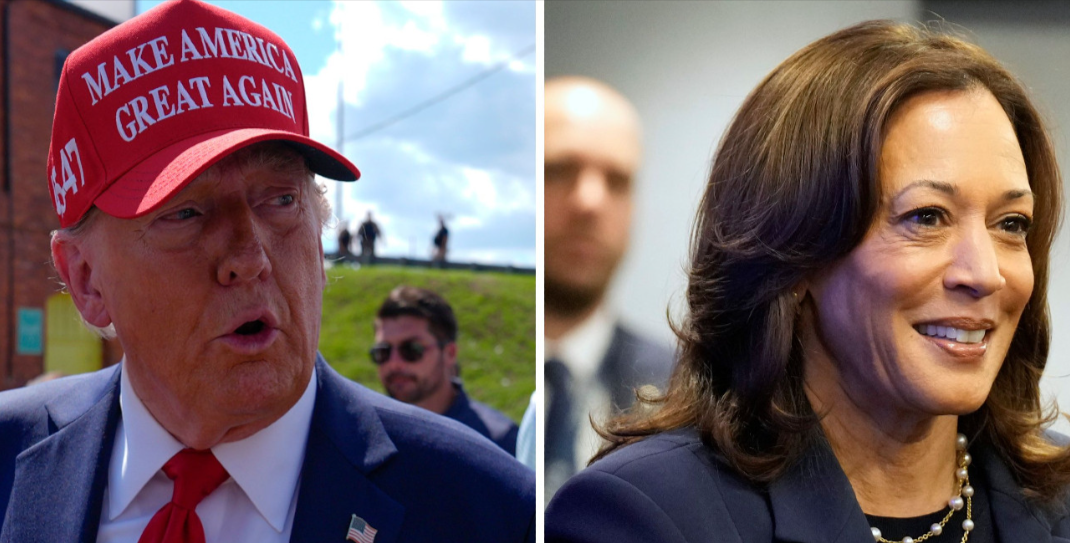New Polling Data Show Trump ‘Landslide’ Victory Increasingly Possible

Recent polling data from historically reliable firms suggests that former President Donald Trump is on track for a potential “landslide” victory in the 2024 presidential election over Vice President Kamala Harris.
New figures from Trafalgar Group and Insider Advantage show Trump holding a strong position, with the possibility of a landslide win becoming more evident. The latest numbers reveal that Trump is ahead in multiple crucial battleground states, laying out a clear path to success in November.
According to the revised electoral map, Trump is projected to secure 296 electoral votes, while Kamala Harris trails with 226. Particularly noteworthy are Trump's advances in pivotal states such as Pennsylvania (+2.2), Michigan (+2.2), and Wisconsin (+1.1), which have historically played critical roles in past elections. These states, typically Democratic-leaning in tight races, now seem to be shifting toward the former president.
Trump is also leading by a slim margin in Arizona and North Carolina, while Nevada and Georgia remain highly competitive. Trafalgar's data reflects a virtual tie in Georgia, a state fiercely contested in recent elections by both parties.
Further evidence of this shift comes from Senate odds, which now indicate a 73% likelihood of Republicans regaining control of the Senate. This would represent a significant political shift in Washington, affecting the balance of power.
#Updated Electoral Map Based on Trafalgar/Insider Advantage polling
— InteractivePolls (@IAPolls2022) October 2, 2024
🟥 Trump 296 🏆
🟦 Harris 226
——
Pennsylvania - 🔴 Trump +2.2
Michigan - 🔴 Trump +2.2
Wisconsin - 🔴 Trump +1.1
Arizona - 🔴 Trump +1
North Carolina - 🔴 Trump +1
Nevada - 🔴 Trump +1
Georgia - 🟡 Tie
——… pic.twitter.com/7Kwhf9SlKC
In addition to polling, political prediction markets are increasingly favoring Trump’s chances. Polymarket, one of the world’s largest prediction markets, currently gives Trump a 49% chance of winning the presidency—a considerable rise from previous months.
Despite her position as the current vice president, Harris appears to be losing traction, especially in Democratic-stronghold states like Michigan and Wisconsin.
On the policy front, Harris has been facing ongoing challenges. During a recent interview with MSNBC host Stephanie Ruhle, one of the less-discussed moments was Harris’s difficulty in answering a question about how she would fund expanded child tax credits and housing subsidies.
Political analysts pointed out that when Ruhle pressed her on how these programs would be financed, Harris seemed to rely on familiar talking points without addressing the issue directly.
“If you can’t raise corporate taxes, or if the GOP takes control of the Senate, where do you get the money to do that? Do you still go forward with those plans and borrow?” Ruhle asked.
Harris responded with, “Well,” followed by a brief pause, and then said, “…[B]ut we’re gonna have to raise corporate taxes.”
She continued, “And we’re gonna have to raise…We’re gonna have to make sure that the biggest corporations and billionaires pay their fair share. That’s just it. It’s about paying their fair share.”
Corporate tax rates were reduced under the Trump administration after a GOP-controlled Congress passed the largest tax reform in decades, lowering the corporate tax rate from 35% to 21%. Most Americans, particularly those in the middle- and working-class, also saw tax reductions. A 2021 analysis found that the majority of the population benefitted from these cuts.
Harris also faced criticism for delivering more “word salad” responses during another interview last month, which she attended alongside Minnesota Gov. Tim Walz. The interview, conducted by CNN anchor Dana Bash, sparked reactions from conservative media and activists on social media platform X, especially regarding a clip where Harris discussed her evolving policy positions since accepting the Democratic presidential nomination.